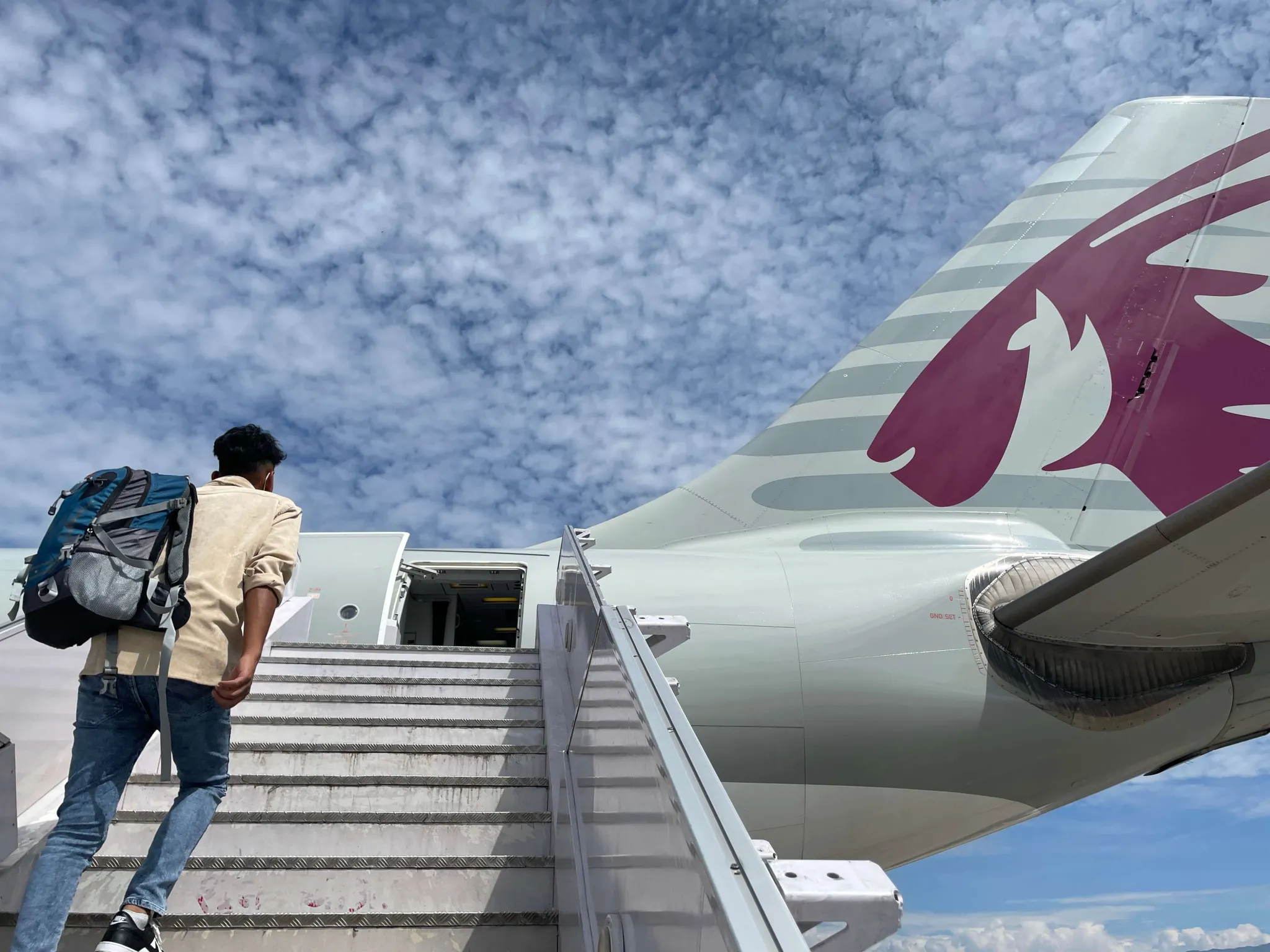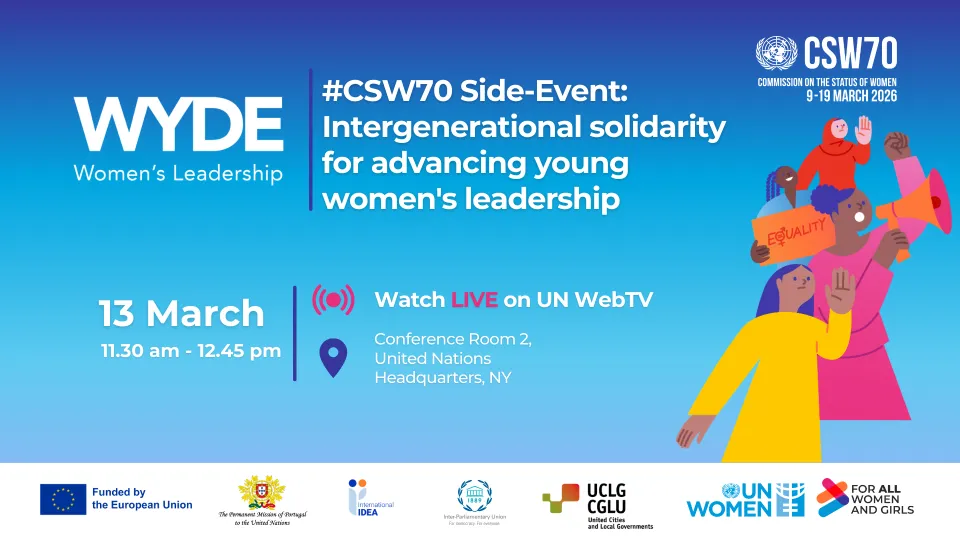Democracy on the Move in Asia and the Pacific: Voting rights versus reality

This International Day of Democracy, as International IDEA releases its Global State of Democracy report, Democracy on the Move, we are reminded that democracy is never static. It travels with people — across borders and seas, through generations and communities. In Asia and the Pacific, where migration shapes the lives of millions, the right to vote and participate in democratic processes is essential.
Yet for many, that right remains out of reach. Today, more than 300 million people live outside their country of birth, with most having moved only as far as to neighbouring states, or within their own regions. These migratory flows are reshaping questions of citizenship, rights, and belonging, forcing democracies to confront how inclusive they truly are.
This right is enshrined in the Universal Declaration of Human Rights. Article 21.1 says this clearly: Everyone has the right to take part in the government of his country, directly or through freely chosen representatives. In practice, in Asia and the Pacific region, the reality for millions of migrants is more complicated. Who can, and does, vote depends not only on citizenship but upon access, geography, technology, and, perhaps more crucially, political will.
Consider the Philippines, the origin of one of the world’s largest diaspora groups. The country pioneered efforts, including Online Counting and Voting System (OVCS) to enfranchise out-of-country voters – overseas workers number in the millions. In a forthcoming analysis of overseas voting in the 2025 midterm elections, International IDEA found uptake remains uneven and challenges ranging from trust to awareness persist. The study highlighted eligibility and documentation hurdles, limited outreach and voter education efforts, procedural and geographic barriers, and operational limitations at overseas voting centres From the Philippines, we can see a clear lesson: rights must be bundled with robust systems, to prevent them becoming purely theoretical.
Recent developments shows that diasporas have shaped democratic trajectories in profound ways. Following the fall, and subsequent fleeing, of Prime Minister Sheikh Hasina during Bangladesh’s 2024 Monsoon Revolution, overseas Bangladeshis mobilised to draw international attention to the movement and amplify demands for human rights and justice to be prioritised by a succeeding administration. As current Chief Advisor of the interim government, Muhammad Yunus has made a bold promise: to allow the diaspora to vote in future elections. It remains to be seen how this difficult task will be implemented. The significant influence of diaspora groups comes not only in times of struggle, but in the form of sizeable economic support via remittances. Their voices, although geographically distant, remain deeply entwined with the country’s democratic life.
At the same time, the Bangladeshi case highlights the tensions that diaspora engagement can create. The government has often struggled to balance the contributions of its global community with concerns about external influence on domestic politics.
Questions of accountability and representation persist: how should citizens abroad participate in elections that directly shape institutions they may no longer live under? These debates reflect a broader challenge across Asia and the Pacific—how to design systems that safeguard the rights of migrants while ensuring that democracy remains rooted in local legitimacy.
Sri Lanka offers a contrasting perspective. Successive governments have been cautious about extending meaningful voting rights to the country’s large Tamil diaspora, many of whom fled during the civil war. For policymakers in Colombo, the diaspora is often seen less as a bridge to the outside world than as a potential political force that could reshape domestic debates from afar. This scepticism reflects deeper anxieties about national identity, sovereignty, and the lingering legacies of conflict.
Yet excluding the diaspora comes with costs. Many overseas Sri Lankans continue significantly contribute to their nation of origin through remittances and play a role in reconciliation initiatives. By limiting their formal political voice, the state risks alienating a community that could otherwise be a partner in strengthening democracy and stability. The Sri Lankan case illustrates the dilemmas governments face: extending rights to citizens abroad can empower communities, but it also forces difficult conversations about trust, representation, and the balance between domestic politics and transnational influence.
Turning to small island states in the Blue Pacific region, the questions raised by increased mobility are extra urgent. Samoa, for example, has more citizens living abroad than at home. Governments understandably fear that extending voting rights to all non-residents could distort domestic politics. But practical solutions exist. Some countries limit eligibility to a fixed period — such as five years after departure—ensuring that labour migrants and recent expatriates retain their rights without de-coupling elections from domestic lived experiences. Such mechanisms can help strike a balance between inclusivity and sovereignty.
The broader lesson for the region is that democracy must adapt to mobility. Migration will continue to shape Asia and the Pacific, whether through the vast outflows of workers from South Asia, climate-related displacement in the Pacific, or the transnational movement of students, professionals, and families across Southeast Asia. Ensuring these citizens are not politically invisible is central to building resilient democracies.
On this International Day of Democracy, we should remember that the ballot is not bound by borders. The democratic right to vote must travel with people. By embracing inclusive models of absentee and diaspora voting, governments can turn migration from a democratic challenge into a democratic strength—deepening ties with citizens abroad, strengthening integration at home, and ensuring that democracy, like people, remains on the move.




